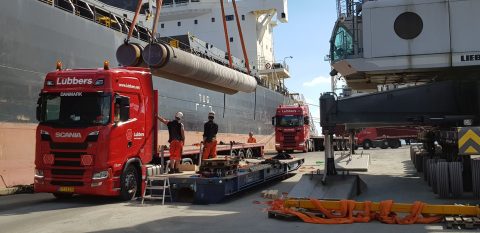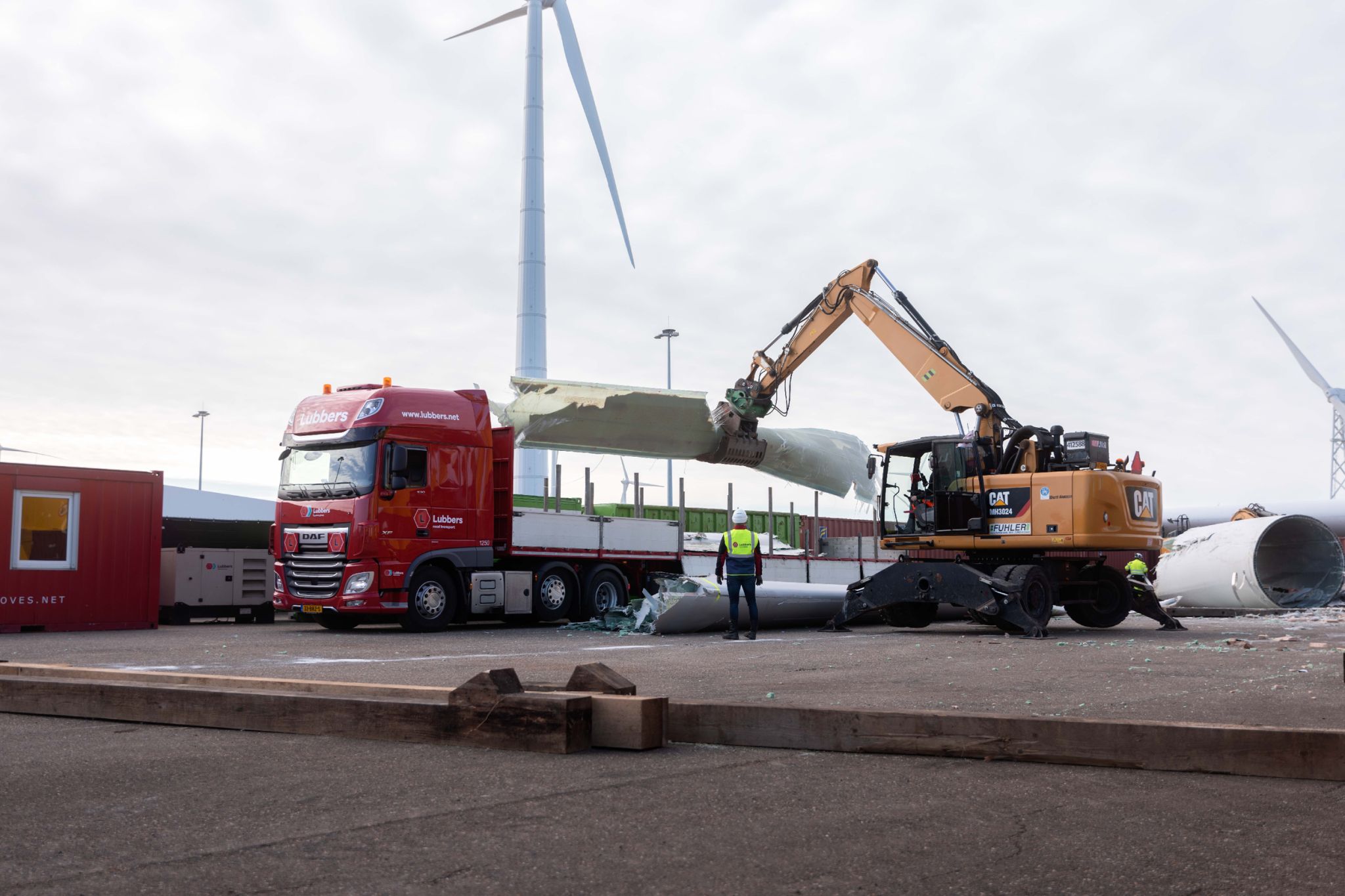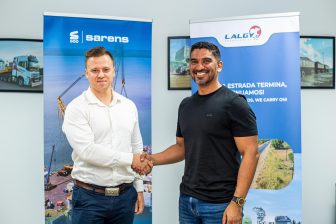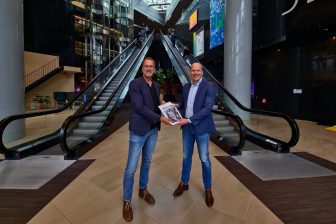
Experience pays for Lubbers as major clients come knocking
At Lubbers Logistics Group they say that no matter how complex, heavy or dangerous the goods are, they know how to deliver. Even if it is the case of moving a whale, be it a fiberglass model, on the road, the company rises to the challenge.
While a fiberglass whale was a peculiar cargo to move, the company is active in many sectors, Oil & Gas being one of the biggest focus areas for the company. However, the strength within the team has enabled diversification into many other areas and as of recently, Lubbers has seen an increase in orders from the Maritime & Dredging as well as the Renewables sector. “We see activities developing in these sectors rapidly, with major players realising the strength and experience of Lubbers and leveraging our services and network for their projects,” says Jarno de Graaf, Director Maritime & Dredging at Lubbers, told Project Cargo Journal.
Activity within the Maritime & Dredging sector has picked up over the last twelve months with the company receiving more and more requests outside of its European trucking lanes. “More and more we are asked to deliver service to destinations such as Turkey and the Black- and the Caspian Sea region,” adds de Graaf.
Pascal Lammerts van Bueren, Global Director Operations at Lubbers Global Freight, added that projects to Latin America, the Middle East and Turkey are ‘booming’ right now.
However, the expansion has not come without its own challenges, where Lubbers has had to push through with its dedicated teams to make sure its clients get the quality and speed of service they are used to receiving from the company. Capacity has been a major challenge for Lubbers during this period, with Lammerts van Bueren noting that the company’s teams have been working hard to balance the available capacity with the projects it was involved in.
Looking forward, Lammerts van Bueren adds that the traditionally strong oil & gas segment will bring the most volumes, however, he pointed that in 2023, the company’s Pipeline Projects business will see an increase in volume and requests, adding that 2022 is a transitional year.
To remind, Lubbers Pipeline Projects business serviced the Baltic Pipe project, coordinating the entire Port-to-Stacking logistics over a period from 2020 to 2022. A total of 14 seagoing vessels were unloaded in three different Danish Ports. All transports to, and stacking services on 33 storage locations, have been organised by Lubbers.
Trucking the more economic option
De Graaf added that the high shipping rates have pushed clients to look into trucking as a more economic and flexible option with a shorter transit time. This was certainly the case on a project request from an international dredging client requiring Lubbers to move a large amount of dredging pipeline from four different locations throughout Northwest Europe to the Mediterranean.
“Normally a request where shipping by a coaster vessel would be a good alternative. However due to the enormous price range and pressure on the market together with the client we chose for a trucking option moving over 300 FTL in four weeks’ time to the project site. Due to the high shipping rates, trucking was the more economic and flexible option with a lower transit time,” de Graaf said.
And it is noticeable that more clients within Europe are sending in requests to move OOG cargo by road, where they traditionally might have asked for a different modality. “Our special transport teams often find the best project solution using multimodal options, combining road freight with barging or shipping,” he says.

Lubbers making the Southern Route switch
With activities picking up in the Caspian Sea region, Lubbers had to act fast in February when the war in Ukraine broke out. At the time, Lammerts van Bueren says the company was busy working on a mobilisation towards the Caspian Sea region with numerous trucks in transit in Belarus and Russia.
“The company immediately took action and shifted all traffic to the Southern route towards the Caspian Sea, closely monitoring the active trucks in transit via the Northern route,” he said.
The company still makes use of the Southern route via Turkey, Georgia, Azerbaijan and onwards. Despite bottlenecks at the Turkish border and a ferry crossing in Azerbaijan, the company is making sure to mitigate any transit delays.
“There is always room to reach perfection, and our goal is to always strive for better service and ensuring that our customers are the centre of our operations,” Lammerts van Bueren said. The company also makes full use of its experienced team with extensive knowledge about the region, as well as connections with local partners to ensure smooth transit.
Decarbonising road transport
The current environment is putting more focus on getting the job done, but this does not mean jobs can’t be done in an environmentally friendly way. According to de Graaf, Lubbers is closely following the development in the industry in regards to cleaner trucks and alternative fuels.
A sustainable strategy and monitoring the carbon footprint is helping Lubbers outline a strategy that will help it reduce its own emissions. “Our clients are more and more concerned about visualising the carbon footprint of their activities and projects. More requests are coming for insight into the expected emissions during mobilisation or shipment already in the tender process, as more often we make movements for the renewable energy projects and coastal protection schemes,” de Graaf said.
With things stabilising going forward, de Graaf expects the focus to shift from just getting the job done, to getting it done with the least effect on the environment.
You just read one of our premium articles free of charge
Register now to keep reading premium articles.




